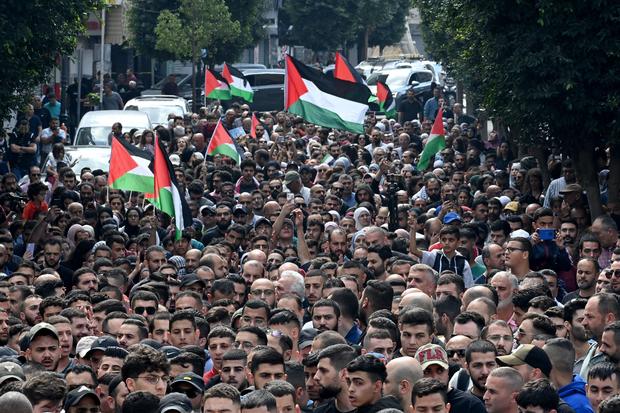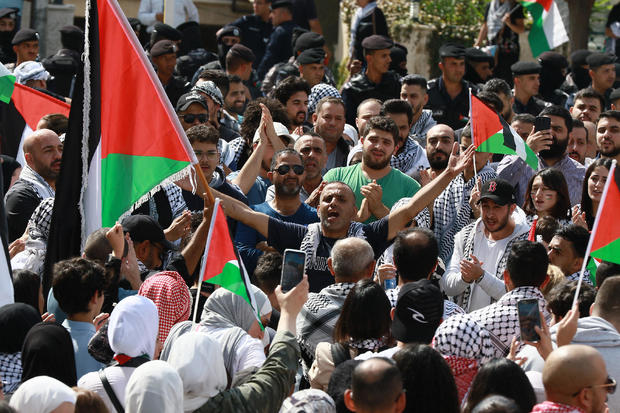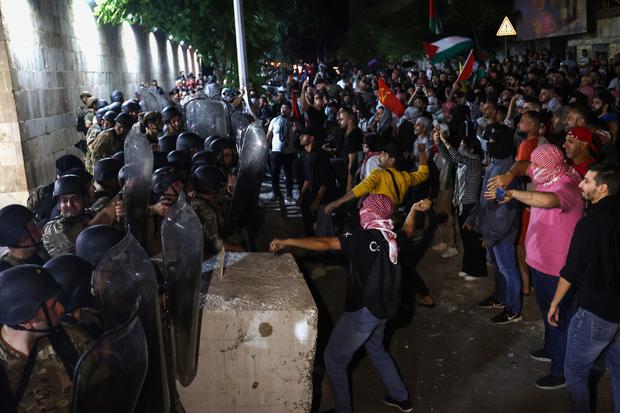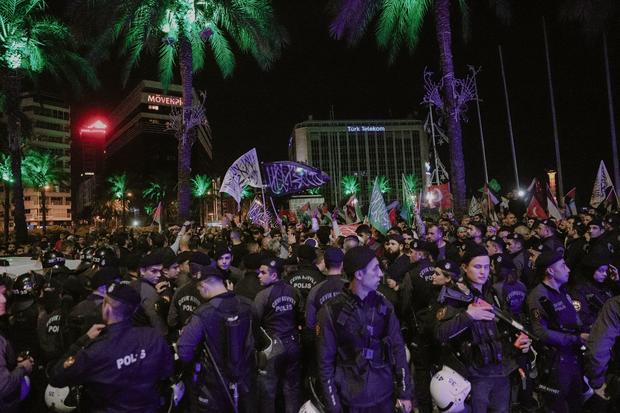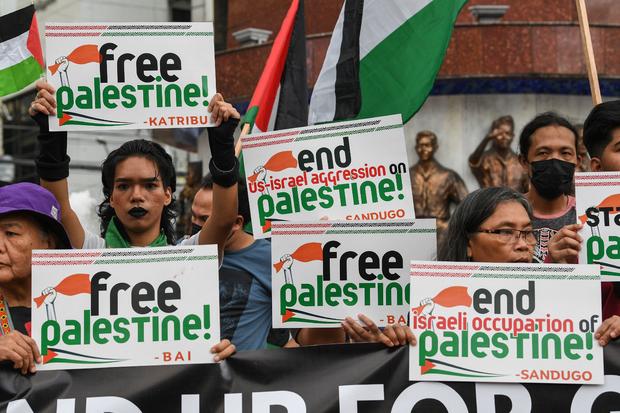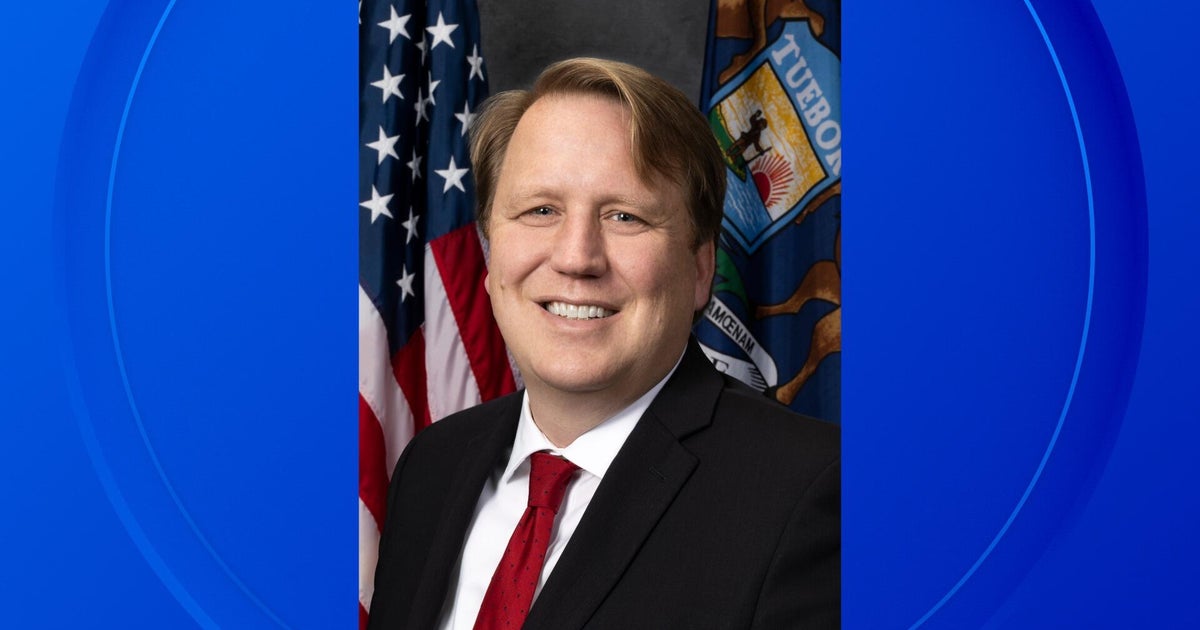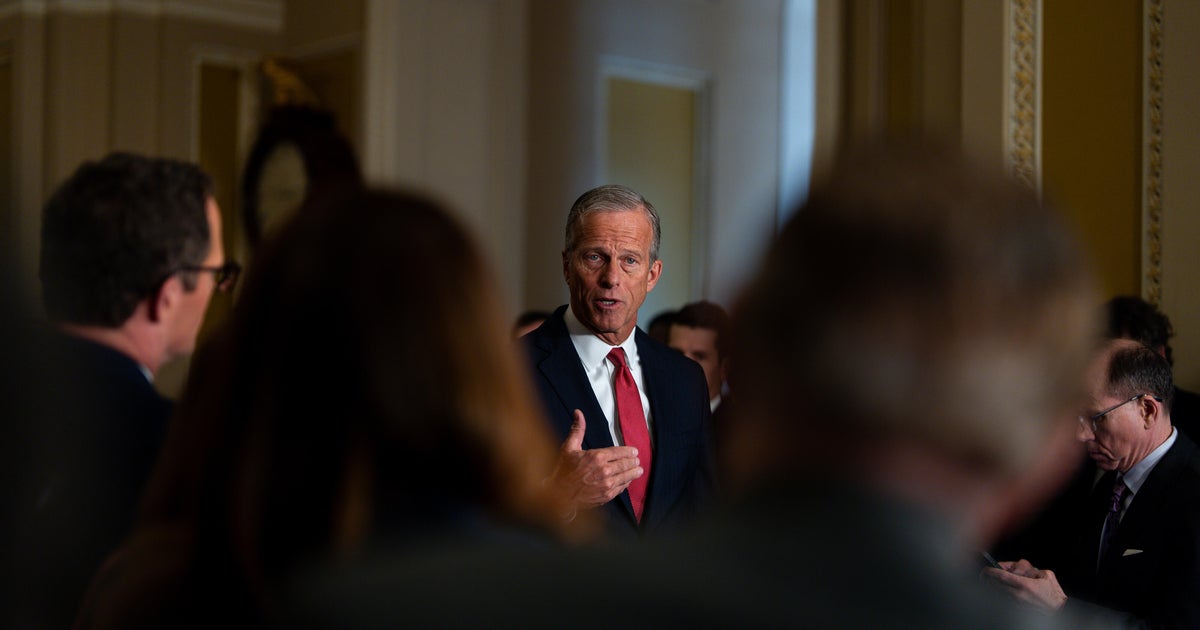Israel-Hamas war fuels anger and protests across the Middle East amid fears of a wider conflict
Within hours after a blast was said to have killed hundreds at a Gaza hospital, protesters hurled stones at Palestinian security forces in the occupied West Bank and at riot police in neighboring Jordan, venting fury at their leaders for failing to stop the carnage.
President Abdel-Fattah el-Sissi of Egypt, King Abdullah II of Jordan and Palestinian President Mahmoud Abbas — friends of the U.S. who normally relish the chance to meet with American presidents — called off a planned Wednesday summit with Joe Biden, who will now only visit Israel.
U.S. Secretary of State Antony Blinken spent much of the past week meeting with Arab leaders to try to keep tensions in check, but those efforts are now in doubt following the hospital blast. The raw nerve of decades of Palestinian suffering, left exposed by U.S.-brokered normalization agreements between Israel and Arab states, is throbbing once again, threatening broader unrest.
"This war, which has entered a dangerous phase, will plunge the region into an unspeakable disaster," warned Abdullah, who is among the closest Western allies in the Mideast.
Gaza's Hamas-run Health Ministry said an Israeli airstrike caused the hospital blast, while Israel blamed it on a rocket fired by the militant Islamic Jihad group that fell short. Biden echoed the Israeli view after arriving in Tel Aviv, saying the blast appeared to have been caused "by the other team, not you," but that there were "a lot of people out there" who weren't sure.
There was no doubt among the Arab protesters who gathered in several countries late Tuesday to condemn what they saw as an Israeli atrocity.
In the Israeli-occupied West Bank, which has been under lockdown since a bloody Oct. 7 rampage by Hamas militants ignited the war, protesters clashed with Palestinian security forces Tuesday night into Wednesday morning, in cities including Ramallah, the seat of the Palestinian Authority. The protesters called for an independent Palestinian state and the overthrow of Abbas, the AFP reported, and voiced support for Hamas.
Israel and the West have long viewed Abbas as a partner in reducing tensions, but his Palestinian Authority is widely seen by Palestinians as a corrupt and autocratic accomplice to Israel's military occupation of the West Bank.
Jordan, long considered a bastion of stability in the region, has seen mass protests in recent days. Late Tuesday, pro-Palestinian protesters tried to storm the Israeli Embassy, and on Wednesday morning, thousands of people protested outside the building, according to the AFP.
"They are all normalizing Arab rulers, none of them are free, the free ones are all dead!" one protester shouted on Tuesday night. "Arab countries are unable to do anything!"
Egypt was the first Arab country to make peace with Israel, in the late 1970s. Jordan followed in 1994.
Egypt has not seen many large protests since the latest Hamas-Israel war started, but on Wednesday, thousands of people demonstrated across the country in solidarity with Gaza, according to the AFP. A small group of activists outside the U.S. and U.K. embassies in Cairo called for Egypt to cut ties with Israel and expel its ambassador on Tuesday night. Security has been increased in the Maadi district of the city, where the Israeli embassy is based, the AFP said.
Protests are largely banned in Egypt, and authorities have waged a heavy crackdown on dissent for over a decade, making such demonstrations a rare event. The country is also grappling with fears that Israel could push the Gaza Strip's 2.3 million residents into Egypt's Sinai Peninsula.
"The U.S. administration is a partner through supporting the crimes committed by the occupation military against the people of Gaza," said Khaled Dawoud, the spokesperson for a coalition of opposition political parties and public figures.
Protests also erupted in Lebanon, where Hezbollah has traded fire with Israeli forces at the border, threatening to enter the war with its massive arsenal of rockets. Some photos showed protesters throwing rocks at the French embassy complex in Beirut overnight, with members of the Lebanese army and police guard standing between the building and the crowd.
In Turkey, photos showed hundreds of protesters gathered outside the Israeli Consulate General in Ankara Tuesday night; other images show a rally in Istanbul.
"The Arab street has a voice. That voice may have been ignored in the past by governments in the region and the West … but they cannot do this anymore," said Badr al-Saif, a history professor at Kuwait University. "People are on fire."
Protests also took place in the Philippines, Japan, Norway and the United States, many of them outside Israeli embassies.
As recently as a couple of weeks ago, the regional outlook seemed far different.
In his address to the U.N. General Assembly last month, Israeli Prime Minister Benjamin Netanyahu boasted that the Abraham Accords, the agreements in which four Arab states normalized relations with Israel in 2020, were a "pivot of history" that "heralded the dawn of a new age of peace."
He said Israel was "at the cusp of an even more dramatic breakthrough" — a historic agreement with Saudi Arabia that the Biden administration had been focused on in recent months.
The Abraham Accords, with the United Arab Emirates, Bahrain, Morocco and Sudan, were reached with autocratic leaders willing to set aside the Palestinian issue in order to secure their own benefits from the U.S. The UAE hoped for advanced fighter jets. Morocco won U.S. support for its claim to disputed Western Sahara, and Sudan's ruling military junta got longstanding U.S. sanctions lifted.
Saudi Arabia had asked for a U.S. defense pact and aid in establishing a civilian nuclear program, as well as a substantial concession to the Palestinians that the Saudis have yet to publicly spell out.
But despite all the high-level diplomacy, ordinary Arabs and Muslims still express strong solidarity with the Palestinian cause. During last year's World Cup soccer tournament, for example, Palestinian flags were waved in abundance even though the national team did not compete.
The recent devastation in Gaza has stirred those sentiments again, likely giving pause to the Saudis and other governments that were considering normalization.
"No Arab government is able to extend its hand to Israel amid its aggression on the Palestinians," Ammar Ali Hassan, an Egyptian political scientist. said.
"The Arab peoples won't accept such a move. Even the rulers wouldn't benefit from such ties at this time," he said. "The war on Gaza has revived the Palestinian cause."
